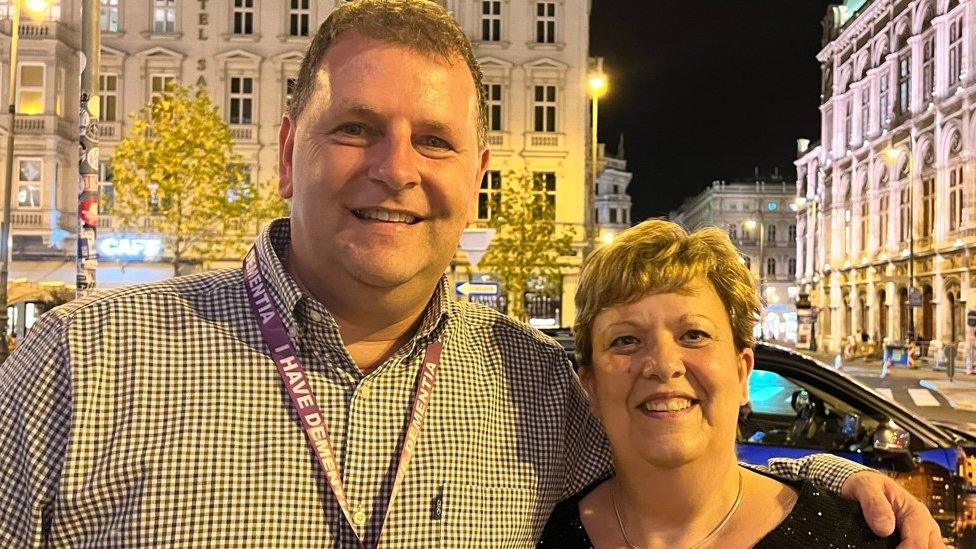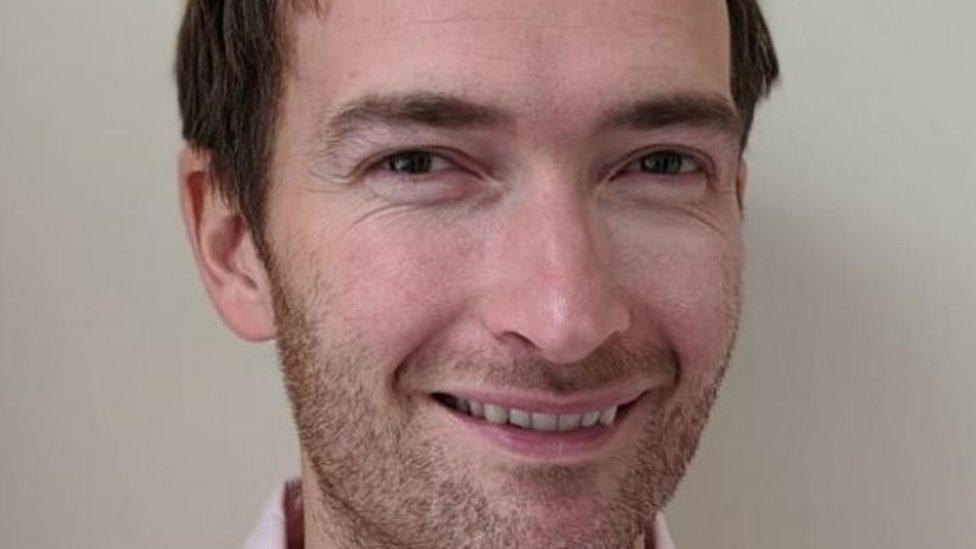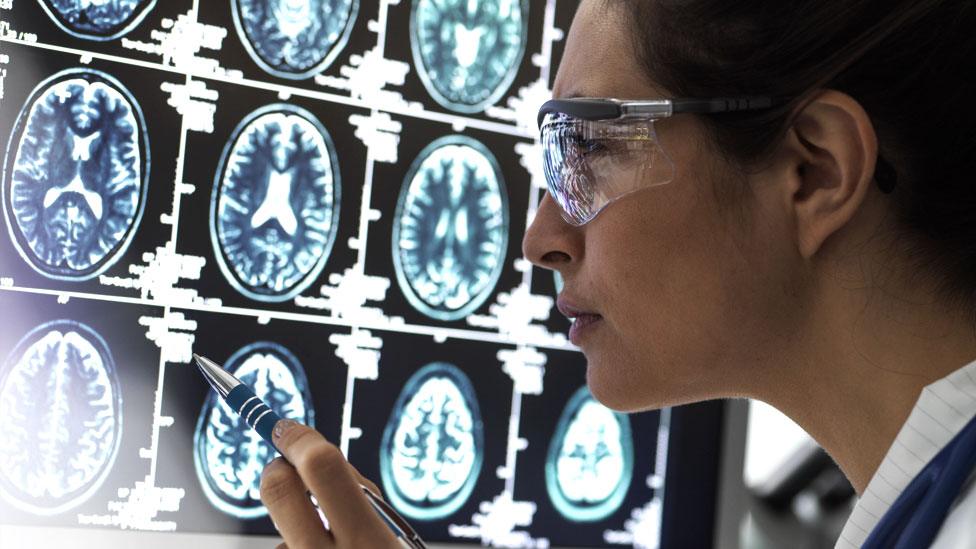Alzheimer's carer's drug hopes for husband, 56
- Published

Karen Bonser cares for her husband Mick, who was diagnosed in 2018
A woman whose husband was diagnosed with Alzheimer's disease at the age of 51 said she fears a new treatment might come too late for him.
Karen Bonser cares for her husband Mick, who was diagnosed in 2018.
Mrs Bonser, from Nottinghamshire, said the results of recent drug trials were "wonderful to hear" but added she feared he may not be eligible for the medication.
The Alzheimer's Society has called for more early diagnosis of the disease.
'Moment to celebrate'
The recent development of a new medicine - lecanemab - was hailed as ending decades of failure to treat Alzheimer's.
Trials have shown the drug can slow the progress of the disease.
However, researchers have warned it has a slight effect and worked only in the early stages of the disease, so many patients would miss out on the benefits.
However the breakthrough will, it is hoped, usher in a new era of drugs to treat the disease and make a difference for future generations.
Mrs Bonser said: "We hold on to hope until told otherwise.
"The news brings much needed hope for people in the future but right now the medical system needs urgent attention to improve dementia diagnosis.
"There's no denying the results from the drug trials are wonderful to hear; it's a moment to celebrate in the dementia research world.
"As a carer for someone living with the condition now, hearing that it's likely not to be available for a few more years, it's time that could take us and others over a threshold for being eligible, and that's even if Mick would have been suitable."

Dr Oakley described the results as exciting
The Alzheimer's Society has said there is a still a long way to go before lecanemab could be available on the NHS.
It has reinforced its calls for better dementia diagnosis.
Dr Richard Oakley, associate director of research at the charity, said: "More than ever there's a need to prioritise early diagnosis, so people can access these drugs when they become available.
"The exciting results offer our best hope yet for not only delaying symptom progression for people with early stage Alzheimer's, but, significantly, slowing the loss of quality of life for them and their carers."

Follow BBC East Midlands on Facebook, external, on Twitter, external, or on Instagram, external. Send your story ideas to eastmidsnews@bbc.co.uk, external.
Related topics
- Published30 November 2022
